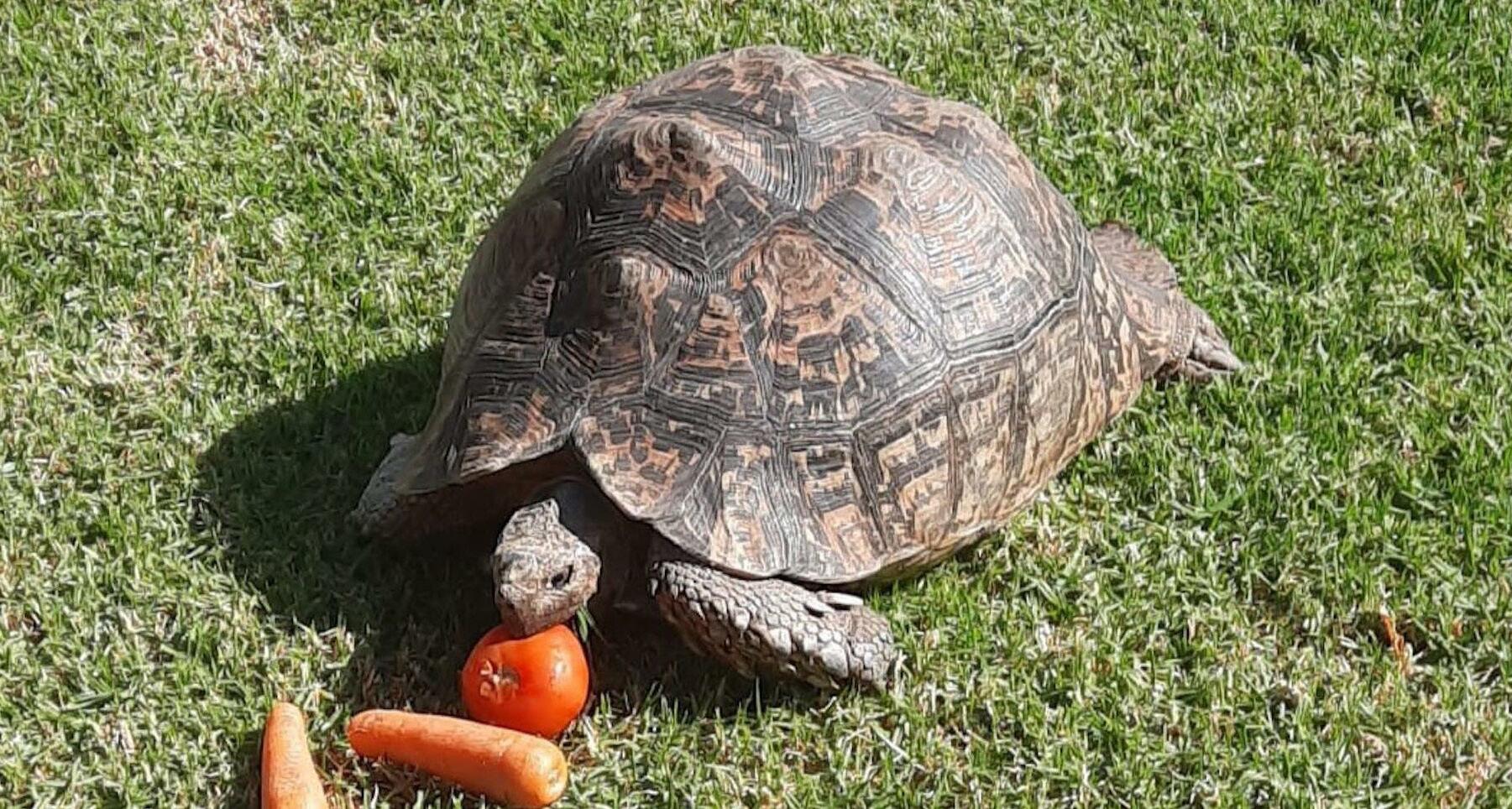
2 minute read
LET THE TORTOISES ROAM FREE ... in the wild where they belong
A Tortoise Is A Protected Species
A large adult tortoise discovered walking up Thistle Downs Street last month, just before New Year, caused a flurry of concern when its photograph and whereabouts was posted on local chat platforms. Although it was safely returned to its owner, it prompted many people to ask questions about licensing, keeping wild tortoises in captivity, etc.
Advertisement
In Stanford, walking in the Wandelpad areas at the top of Queen Victoria Street it’s not unusual to see small tortoises walking in the grass and undergrowth. While there’s always a temptation to remove them, local nature conservationists urge people to leave them where they are, in their natural habitat.
“Captivity can be a death sentence for a tortoise” say Cape Nature’s wildlife specialists.
“Wild animals seldom adapt well to captivity, even if they do live long or breed. Captivity can mean a slow death for some animals, particularly those with a specialised diet or habitat requirements.”
Explained Cape Nature: “Often when pet tortoises escape or are relocated, they can land up in an area they are not accustomed to. This false sense of freedom can be fatal because pet tortoises have become accustomed to captivity and battle to fend for themselves in their new environment. That is why keeping tortoises in captivity in the first place is not a good idea.”
All species of tortoises in the Western Cape are protected by the Nature Conservation Ordinance (Ord. no 19 of, 1974). Accordingly, no tortoise or part thereof (i.e., the shell) or tortoise eggs may be collected, transported, sold, received as a gift, given, kept in captivity, possessed, imported or exported. Species such as the geometric tortoise, which is classified as a threatened wild animal, have special protection. Although Cape Nature Conservation discourages keeping tortoises in captivity, people who wish to keep tortoises and who have suitable facilities, may apply for a permit.

Captivity Has Its Disadvantages
Tortoises are adapted to a specific natural habitat. Their survival is dependent on the correct food and climate associated with that particular habitat. When a tortoise is removed from its natural habitat, it can die because of the different conditions. Tortoises are then often released in areas that are ecologically unsuitable and which fall beyond the species’ natural distribution. In these areas it is difficult for them to survive. In such cases these strange tortoises can transmit diseases to tortoises which naturally occur. Tortoises released beyond their natural distribution range can inter-breed with local tortoises. Furthermore, pet tortoises suffer from parasites such as ticks and worms and may spread virus-borne diseases to healthy, natural populations.
Important Note
Keeping a tortoise without a permit is illegal. They’re a protected species in South Africa. Anyone with unwanted tortoises can contact Cape Nature Conservation to ensure that a suitable home is found for the animals. Please contact your local CAPE NATURE CONSERVATION offices for advice.










